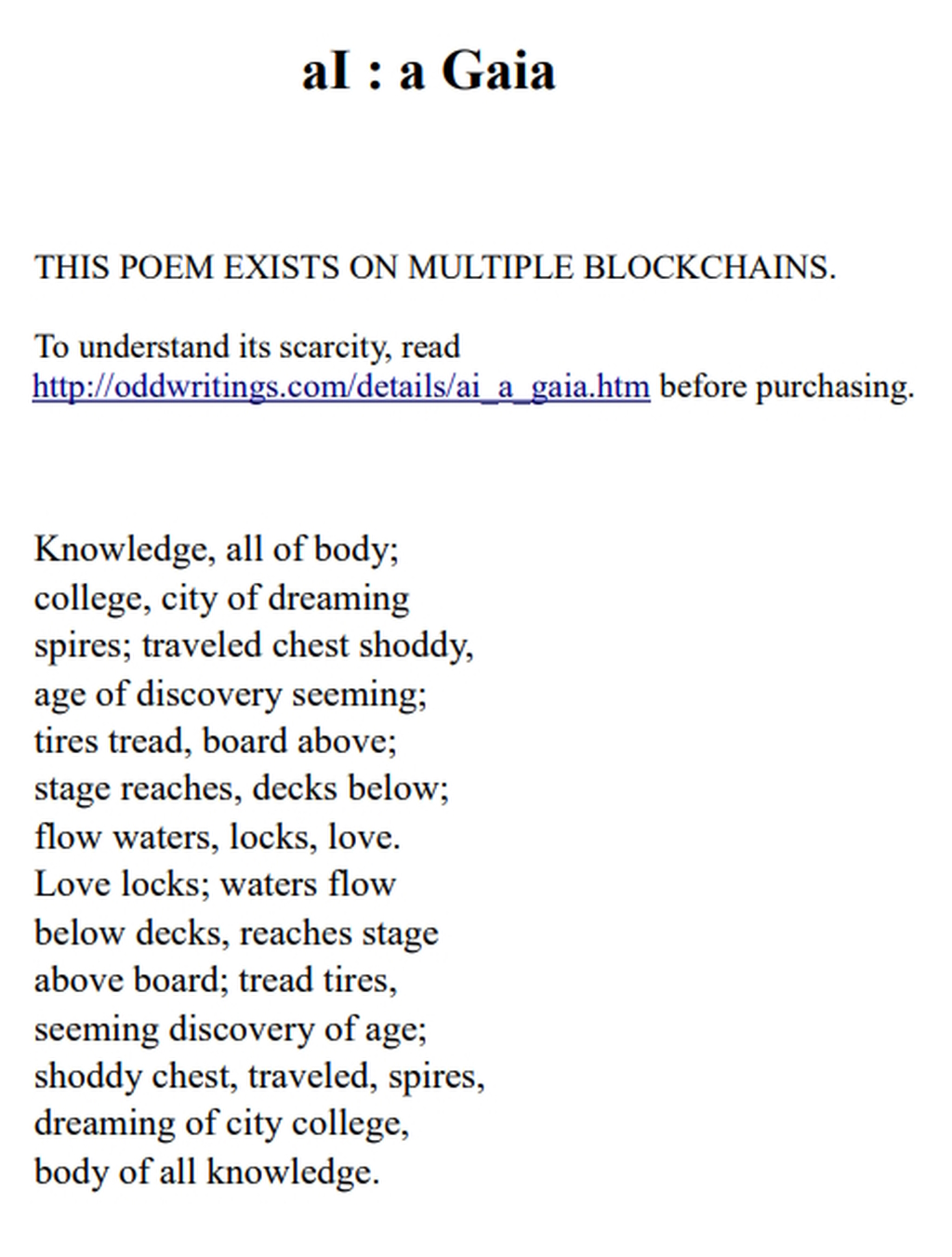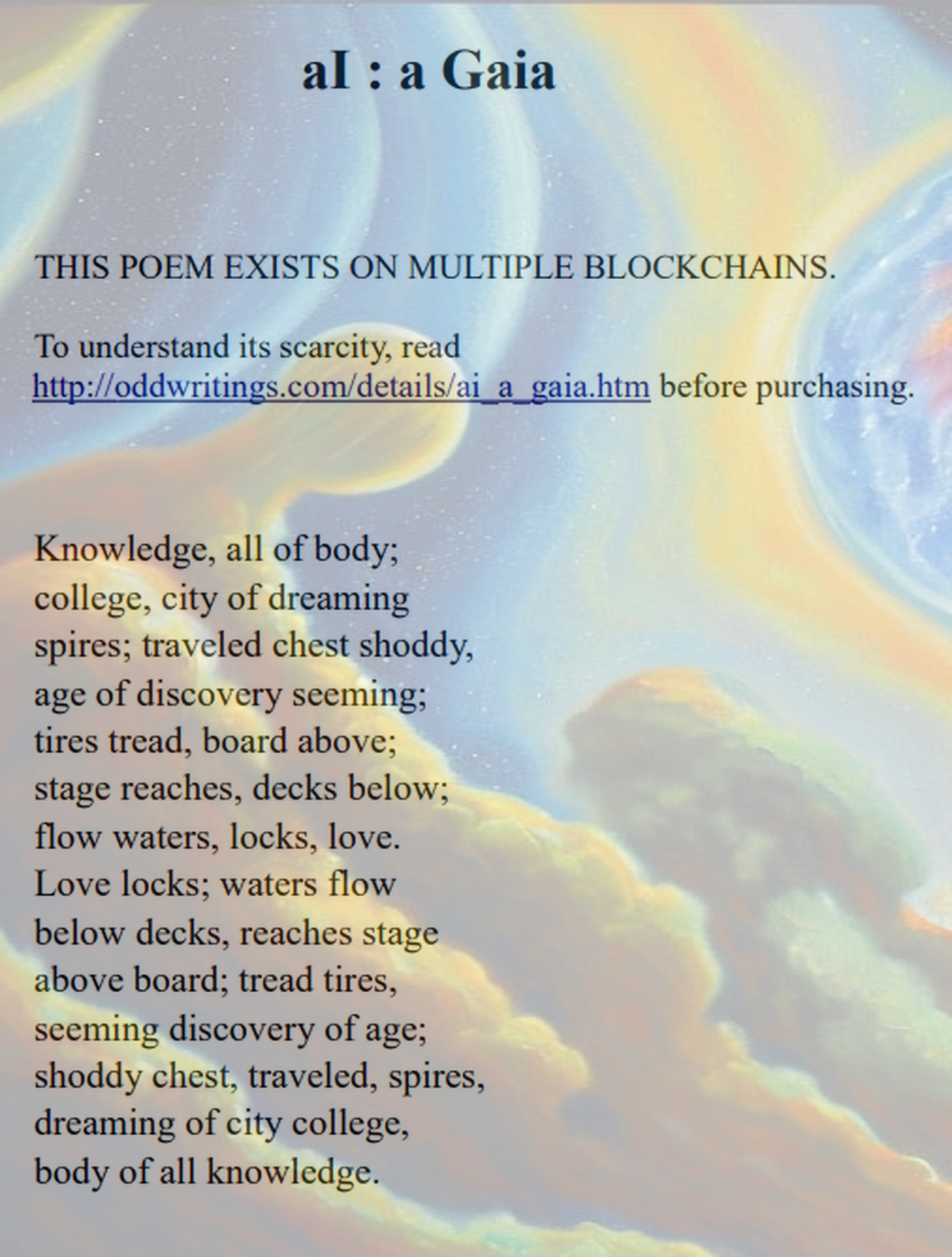OddWritings
aI : a Gaia
This cross-chain word-unit palindrome sonnet explores the futility of the acquisition of complete knowledge. Like all word-unit palindromes, it can be read both backwards and forwards word-by-word.
SCARCITY INFO: The digital collectible of this poem exists in the following blockchain/format/price combinations:
- Polygon : the text by itself. 2 dollars via credit card, on Cent.
(note secondary markets list with either MATIC or ETH) - Polygon : the text on graphics. 2 dollars via credit card, on Cent.
(note secondary markets list with either MATIC or ETH)
- Ethereum : the text by itself. 0.02 ETH, on Foundation or OpenSeaPro.
(note my listing on Foundation turned off availability on the other marketplaces, boo - except for OpenSeaPro) - Tezos : the text by itself. 2 XTZ
- Tezos : the text on graphics. 20 XTZ
This means that there are a total of 41 copies of the poem, spread across the Ethereum, Polygon, and Tezos blockchains. At least one copy has been sold, and so THIS NUMBER OF COPIES IS FROZEN.
SO WHAT DOES THIS POEM LOOK LIKE?
text by itself :

text on graphics :

I READ THE POEM. I'M CONFUSED.
There is no one "right way" to interpret a poem; it can be interpreted many ways, depending on how the poem is written and what experiences each individual reader has had in their life. I'll outline here some notions I had while writing the poem, as a way of spurring your own ideas on interpretation and meaning.
- obsolete meanings
- spire : to breathe
- travel : toil
- seem : befit
- tread : path
- reaches : contrivances
- all of the words in their obsolete senses occur in the second half of the poem
- because this sonnet is also a word-unit palindrome, i have chosen to place the volta at the center (which is where the reader 'turns')
- the first half of the poem begins with Knowledge and ends with love. the second half begins with Love and ends with knowledge.
- city of dreaming spires : Oxford university. - Brewster's Dictionary of Phrase and Fable
- city college : Newgate prison, in front of which prisoners were executed. - Brewster's Dictionary of Phrase and Fable
- to tread the boards : to be an actor. compare "to walk the plank" (not in the poem)
- Lovelock : the author of the gaia hypothesis
- the gaia hypothesis : theory that the earth (a non-human) is nevertheless a single living organism.
- artificial intelligence (AI) must be trained. when training stops, its knowledge slowly becomes outdated.
- an artificial intelligence, presumably, never dies.
- in Herodotus, solon tells croesus : "count no man happy until he be dead"
This website is powered by myself.